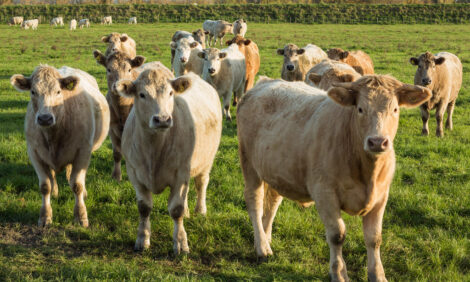



Challenge of Continuously Improving Food Safety
US - The meat and poultry industry has been working successfully to meet the challenge of continuously improving the safety of meat and poultry products, said AMI President and CEO J. Patrick Boyle, who testified before the House Committee on Agriculture.During the hearing, Boyle shared with the Committee some of the significant safety improvements the meat and poultry industry has made and the important role government oversight plays in assuring that the industry meets its responsibility to produce safe food.
Boyle also noted that the meat and poultry industry has been a strong advocate of a preventative approach and in fact petitioned the United States Department of Agriculture (USDA) to mandate Hazard Analysis and Critical Control Point (HACCP) plans in meat and poultry plants.
“We have a strong meat and poultry inspection system, but it’s important to recognize only the industry can produce safe food,” Mr Boyle said.
“While food processors and handlers can minimize risks through the use of good management practices, we cannot guarantee with absolute certainty that all food products are free from all risks. But progress continues to be made,” Mr Boyle testified.
Specifically, Mr Boyle said, government data show a decline in pathogen prevalence on meat and poultry products.
Mr Boyle also addressed a number of issues related to the current food safety debate, including whether microbiological performance standards are a useful tool.
“The answer is they can be if properly constructed to achieve a public health objective and if they are scientifically based to measure whether food is safe and not injurious to public health,” Mr Boyle said.
“Conversely, I would suggest that a performance standard based solely on achieving an arbitrary outcome that yields no public health benefit is inappropriate.”
When it comes to enhancing the enforcement powers of the inspection agencies, including civil monetary penalties and other sanctions, Mr Boyle said very severe penalties already are in place. Boyle also addressed the issue of mandatory recalls.
“Calls for mandatory recall ignores a simple fact: Industry has every incentive to remove contaminated product from the marketplace to reduce potential liability,” Mr Boyle said.
“Experience shows us that the speed with which contaminated meat and poultry product is removed from the market will not improve with mandatory recall. In most cases, meat and poultry products are recalled within hours after a problem is discovered. And FSIS' product detention and retention authority provides significant leverage to compel a voluntary recall."
A final concern Mr Boyle addressed is imposition of a user fee that would be paid by the regulated industry for food safety inspection services. Similar proposals for meat and poultry inspection at USDA have been rejected by Congress annually for nearly 30 years.
“USDA inspection services have long been paid for with government funds because those inspections are activities that benefit the general public,” Mr Boyle said.
“Inspection activities should be funded not from user or registration fees that, in effect, are a food tax, but from monies appropriated out of the general treasury.”
Mr Boyle also shared with the committee a number of suggestions AMI feels will improve food safety and expressed the industry’s desire to work with Obama Administrations’ White House Food Safety Working Group on implementing effective programs that benefit consumers, the industry, and our public institutions that safeguard the nation's food supply.
TheCattleSite News Desk


